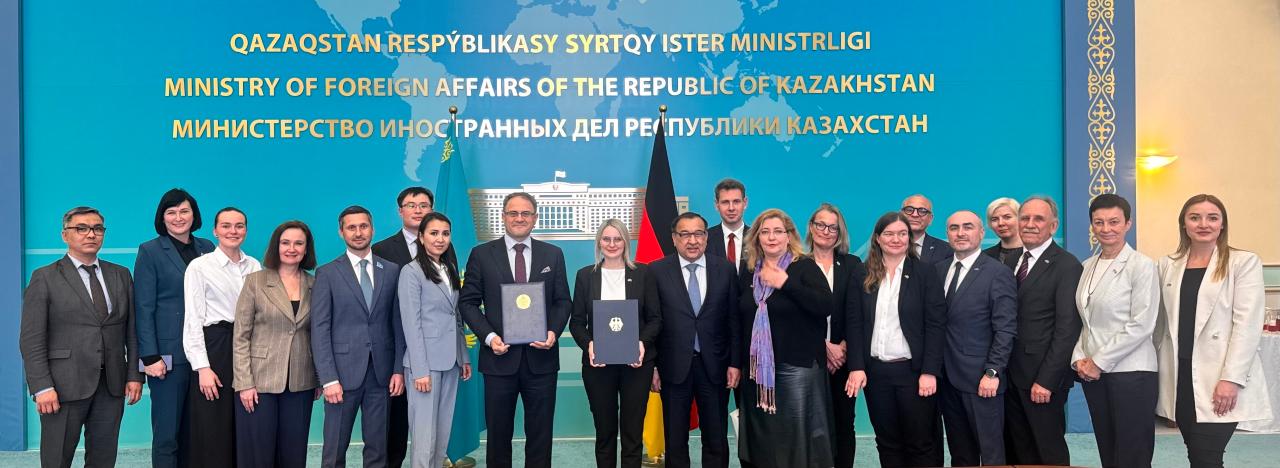ASTANA — The Kazakh-German Intergovernmental Commission for the Affairs of Ethnic Germans in Kazakhstan convened on May 21 for its 20th-anniversary meeting, aiming to enhance cultural and humanitarian cooperation and discuss the German ethnic group’s affairs, reported the Kazakh Foreign Ministry’s press service.

20th Meeting of Intergovernmental Commission for Ethnic Germans in Kazakhstan. Photo credit: gov.kz
According to statistics, Kazakhstan is home to 226,000 ethnic Germans, with around one million German resettlers from Kazakhstan now residing in Germany.
Kazakh Deputy Foreign Minister Roman Vassilenko emphasized that Kazakhstan’s multiethnic population is an important factor in the country’s development. Ethnic Germans are widely represented in various spheres of life in Kazakhstan.
Key structures such as the Kazakh-German Center in Astana, the Kazakh-German University in Almaty, the Kazakh-German Institute of Sustainable Engineering in Aktau, the German Drama Theater, and the Deutsche Allgemeine Zeitung newspaper contribute significantly to strengthening cultural and humanitarian ties.
Vassilenko stressed Kazakhstan’s emphasis on effective partnership with German authorities in culture, education, and social sectors. This ensures ethnic Germans’ promising prospects in Kazakhstan and enables them to contribute to mutually beneficial collaboration.
Germany’s Federal Government Commissioner for Matters Related to Ethnic German Resettlers and National Minorities, Bundestag Member Natalie Pawlik, acknowledged the dynamic bilateral cooperation. She noted that Kazakhstan is a key partner for Germany in Central Asia.
Pawlik highlighted that supporting German language education in Kazakhstan can help preserve the national identity of the German ethnic group and prepare professionals for joint investment projects.
Following the meeting, the parties signed a communique outlining further measures for intergovernmental cooperation.
On the same day, Vassilenko met with Renata Alt, chairwoman of the Committee on Human Rights and Humanitarian Aid of the German Bundestag, to discuss cooperation in political, economic, and socio-cultural spheres. This cooperation was significantly boosted by the presidents of the two states’ reciprocal visits in 2023.
The discussions emphasized opportunities for strengthening partnerships in energy, including renewable energy, the extraction and processing of critical raw materials, education, and tourism. The parties also exchanged views on promoting reforms, focusing on human rights and democracy, and cooperation within international organizations.
Vassilenko shared President Kassym-Jomart Tokayev’s main initiatives for building a Just Kazakhstan, which were positively received by the German parliamentarian. Both sides reaffirmed their commitment to enhancing dialogue between Astana and Berlin on bilateral and multilateral issues.
Since 2005, German investments in Kazakhstan’s economy have approached $5.8 billion. In 2023, Kazakh-German mutual trade reached $3.9 billion, with exports at $742.3 million and imports at $3.2 billion. The engagement between the Kazakhstan-Germany and Germany-Central Asia parliamentary groups plays a significant role in developing inter-parliamentary dialogue.

